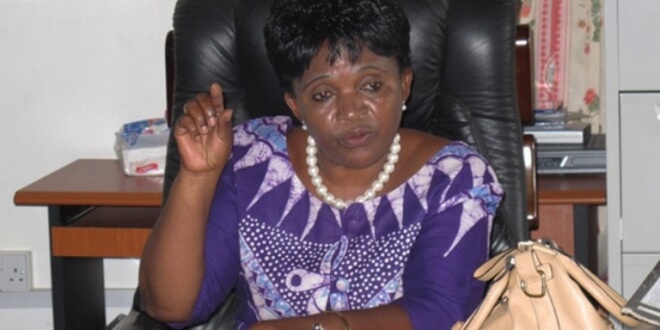
Our Projects are
Transforming African Trade
Quick Contacts
2nd Floor, Fidelity Insurance Centre Waiyaki Way, Westlands

Deputy Minister for Trade and Industries, Eng Stella Manyanya gave the remarks here yesterday when launching the trade research and capacity building programme jointly implemented by REPOA and International Institute for Social Studies of Erasmus University (ISS).
“We have a number of bilateral arrangements, which collectively provide Tanzania with benefits from duty free, quota free arrangement or a waiver to minor customs charges imposed by industrial countries” said the deputy minister
Adding “Their dividends are all to abundant to see, with the value of our exports increasing in recent years, recording annual growth of 11.9 per cent to 9,534.4 million US dollar in the year ending November 2019”
However, she said, despite such developments, there has been a worrying decline in the value of traditional goods, mainly agriculture-based which provide for the livelihoods of large proportions of the population.
“Our traditional exports fell by 21.4 per cent to 740.3 million US dollar in 2019, despite improvements in our coffee, cotton and sisal agro-industries” said Eng Manyanya
Thus, he said, evidence-based research as the one that aimed at strengthen the capacity of policy makers, exporters and trade associations to review trade and related economic policies to promote trade competitiveness and diversification for widen trade opportunities are vital.
She said the government will continue to put in place enabling environment for research organisations to carry out independent, inline with professional ethics, regulations and national laws.
Eng Manyanya commended European Union among other development partners for their continued support for only in capacity building on export competitiveness and diversification but also for complimenting the national capacity to carry out the research and policy debates for enabling policies to be informed by research-based evidence.
In his welcoming remarks, REPOA executive director, Dr Donald Mmari commended the government commitment to engage with various stakeholders in the process of improving national policies and institutional framework aimed at improving the business environment and competitive economy.
Dr Mmari expressed his institution commitment to generate knowledge based on credible and targeted policy research and thus promoted its use in policies and development interventions to achieve socio-economic transformation for inclusive growth and sustained poverty reduction.
“We are pleased that the government has continued to utilize research findings and recommendations in its various policies and strategies, this programme, is about expanding Tanzania export potential through trade diversification and increased competitiveness,” he insisted.
Adding “markets dynamics requires continuous improvement in production and trade efficiency, product quality and standards, policy and institutional drivers of efficiency and productivity are therefore vital in today’s world, and this programme contributes to that.”
He said the programme will focus on five value chains, namely, horticulture, rice, leather, seaweed and logistics with respect to food security, export earnings and employment, particularly for women and young people .
Source: Ippmedia
Disclaimer: The views and opinions expressed in this article are those of the authors and do not necessarily reflect the official policy or position of TradeMark Africa.